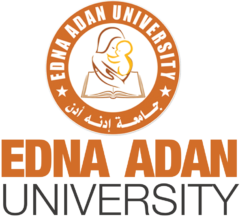Title: Empowering Health Advocates: Master of Public Health (MPH) Program
Introduction:
In Somaliland, as in many developing nations, the burden of preventable health issues affecting mothers and children underscores the urgent need for public health interventions. The nation’s health policy emphasizes the importance of addressing these challenges, highlighting the necessity for highly qualified public health professionals equipped to tackle a spectrum of emerging and re-emerging infectious and non-infectious diseases. With the advent of cross-border health threats like Covid-19, Ebola, and Zika Virus, there is a pressing demand for public health experts trained in surveillance, epidemiology, and advanced research methods. The Master of Public Health (MPH) program serves as a pivotal platform for cultivating such expertise and addressing critical health needs.
Program Overview:
The MPH program is a comprehensive two-year modular program comprising 10 modules and a thesis, totaling 35 credit hours. The curriculum is designed to equip students with advanced scientific knowledge, research skills, and practical competencies necessary for effective public health practice. Emphasizing a multidisciplinary approach, the program covers a broad spectrum of public health domains, including epidemiology, health promotion, disease prevention, and health policy.
Mode of Delivery:
The program utilizes a diverse range of instructional modalities to facilitate immersive learning experiences. Modular lectures, seminars, fieldwork, scientific writing, project design, and group learning foster active engagement and collaborative learning. Practical exercises provide students with hands-on experience, while access to resources such as free WIFI, library facilities, and digital textbooks enhances learning outcomes. The program’s full-time structure ensures a balance between classroom instruction and practical training, with approximately 75% dedicated to coursework and 25% to supervised practical sessions.
Mode of Assessment:
Students undergo rigorous assessment at the conclusion of each course, with evaluation methods including seminar presentations and written examinations. Grading follows the standards set by the institution, with a minimum passing grade of “B” required for course completion. The thesis component of the program entails progressive assessment culminating in a public defense before internal and external examiners. Thesis defense outcomes are graded based on predefined criteria, with opportunities for revision and re-defense in cases of unsatisfactory performance.
Conclusion:
The MPH program serves as a catalyst for nurturing a cadre of skilled and socially conscious public health professionals equipped to address the evolving health challenges facing Somaliland and beyond. By imparting advanced scientific knowledge, research skills, and practical competencies, the program empowers graduates to lead initiatives aimed at promoting health equity, disease prevention, and community well-being. Through a commitment to excellence in education, research, and practice, the MPH program embodies the transformative potential of public health in shaping healthier and more resilient communities.
